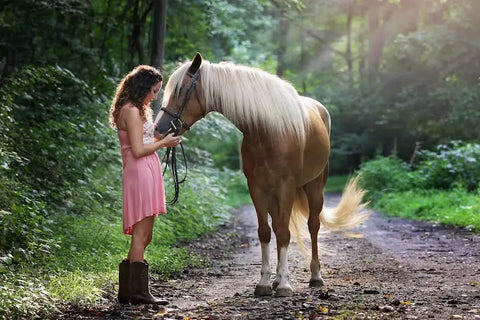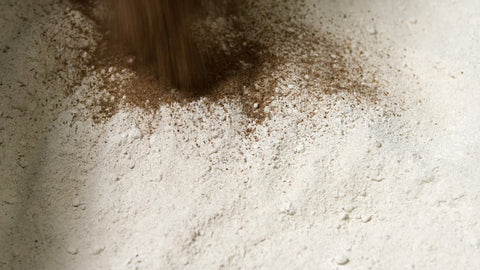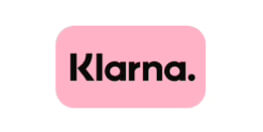
Florian ist aufgewachsen auf einem Bauernhof. Umgeben von Pferden, entdeckte er früh seine Faszination für diese majestätischen Tiere. Inspiriert von seiner reitbegeisterten Mutter, entwickelte er das Nahrungsergänzungmittel - Pferdegold. Seine tiefe Verbundenheit zur Natur und die leidenschaftliche Hingabe zu Pferden trieben ihn an, sein Unternehmen zu gründen.
Table of contents
- Your horse greets you
- Your horse is relaxed
- Your horse follows you
- Your horse trusts you
- Your horse stands parallel
- Your horse can smell you
- Your horse is polite
Dream vs. Reality
 Most owners want a close relationship with their pet.
Most owners want a close relationship with their pet.
I've been looking forward to this moment all day. As soon as I approach the pasture, my horse comes galloping up like a tarantula, nudges me, and gently lays his head on my shoulder. My heart swells; my horse seems to truly love me.
Reality often turns out differently. You enter the scene, the horse briefly lifts its head as if to say, "Ah, okay, you're here, I saw you," and then immediately returns to the truly important thing: eating. That's a hit. You can't help but think that the love isn't all that great—and you're disappointed. This isn't how you imagined it would all go.
Help, my horse doesn't love me!
Our wishes and dreams often correspond to what the movie screen or television presents us with. There, the horse-human relationship is usually highly emotional, a soul mate bond that lasts until the last breath.
The first realization: Horses aren't human, so you shouldn't humanize them. They tick differently. Strong feelings do exist, though. They're just often not so obvious to us two-legged creatures. If a horse immediately returns to the grass after raising its head, that doesn't automatically mean there's no love there.
Let's move on to the next question: Can horses even love? Well, hello! Italian researchers wanted to know exactly that and conducted an experiment: While the horse and its owner were together, they measured their heart rates. And lo and behold: After just a few minutes, their hearts were beating in unison. This phenomenon is known, by the way, from lovers. So, yes!
A word about the "cinematic ideal." Such a thing actually exists—and it flatters the human ego immensely. But be careful: It could also indicate something else, less good, namely compensation. Horses that behave so exuberantly may not feel comfortable in their herd, missing their animal friends. Naturally, they then pounce on "their" human. But a human can never replace a fellow horse.
 Horses need contact with their fellow horses.
Horses need contact with their fellow horses.
But what do these ominous signs that my horse really likes me look like? Are there any? Yes, there are! You just have to look closely. So, put the blinders aside, right now.
7 signs that your horse loves you!
Horses' emotions can be read primarily through their body language and behavior. These are the seven signs that show you that your horse likes you. And the more checkmarks you can tick under each of these points, the better.
1. Your horse greets you
Horses are unique creatures—and so is their way of greeting. They'll neigh, growl, or, as mentioned at the beginning, just briefly raise their head. All of these are greeting rituals. Does your four-legged friend sniff the back of your hand when you hold it out? Yes? Fantastic! That's practically the equivalent of a handshake. Some horses also show their affection by not running away when you approach.
 Today the kitchen will remain cold for a change.
Today the kitchen will remain cold for a change.
Does your horse come galloping up to you every time it sees you? It could be because of the treats you always carry with you. If you want to know if your four-legged friend will greet you just as enthusiastically without carrots and the like, simply come without snacks next time.
2. Your horse is relaxed
You know it from your own experience: In the company of your friends, you're deeply relaxed. After all, you have nothing to fear from someone you trust, so you don't have to worry that they'll pull a fast one on you at any moment. It's the same with horses.
And with horses, the bar is generally set even higher; after all, they are flight animals that are constantly on guard – in other words, if your four-legged friend is relaxed around you, that's a huge compliment.
 If the eyes are only half open, your horse is deeply relaxed.
If the eyes are only half open, your horse is deeply relaxed.
But what does a relaxed horse actually look like? Relaxed horses take the weight off their hind legs; a typical feature is the bedroom look, meaning their eyes are half-closed. Meanwhile, their lower lip hangs loosely downwards (which admittedly looks a bit funny), their ears tilt to the side, and their neck is lowered. When you see these signs, you can lean back against the fence in complete relaxation.
Left = right: The left side is the stress side for horses. What they see with their left eye is relayed to the right side of the brain – the emotional center. This is where the brain processes all the exciting experiences. So, if your horse tries to maneuver you onto the left side, it's anything but relaxed. If your horse doesn't care about left or right, you're in luck!
3. Your horse follows you
Proximity is a key sign of affection. The best way to tell if your horse feels completely comfortable with you is when there are no other horses around. Try an experiment. You're standing together in an empty riding arena. You suddenly turn around and walk away. If your horse immediately follows you, it trusts you and accepts you as a leader.
It's not coming? Stay calm! Try the experiment again. Maybe your four-legged friend was distracted, or it's just not the right day. Try again tomorrow.
4. Your horse trusts you
Bonds between horses are based primarily on trust. And true trust often shows itself when it matters most, i.e., in unfamiliar situations. While out riding, something suddenly appears on the side of the trail that wasn't there yesterday. A horse's alarm bells immediately ring, and as a flight animal, it would instinctively flee.
However, if your horse continues walking calmly, you have a high-end sign of trust. Your horse is thinking: Okay, there's something that scares me, but my human friend probably thinks it's not dangerous. He'll know. These are the magical moments, the jackpot, so to speak, in terms of the horse-human relationship.
5. Your horse stands parallel
In the horse world, parallelism means a sign of friendship. Horses that like each other usually walk parallel across the meadow, feed in parallel, and groom each other—that's right, parallel! So if your horse stands next to you and you observe together what the others are doing in the paddock, you can be overjoyed.
6. Your horse can smell you
Does your horse rest its head on your shoulder? Excellent! This almost always means: "I like you very much." If your horse is also breathing deeply and calmly, it can smell you well. The aforementioned relaxation signals, such as half-closed eyes, also mean only one thing: "I like you!"
7. Your horse is polite
Politeness is a virtue – it's no different in the horse's life. But of course, the way we express it differs from ours. Perhaps you have a particularly courteous horse and don't even know it! Polite people hold back. Taking a step back, lowering their head while being groomed, or pricking their ears to the side means: I appreciate you and therefore like to be polite.
Look closely and don’t put any pressure on yourself
The most important rule: Pay attention! Your horse may have been giving you countless signals all along that he loves you deeply and passionately, but these are often so "small" and subtle that you haven't even noticed them until now. No problem, now you know them.
 No question, this horse loves his owner.
No question, this horse loves his owner.
And if you're wondering why your horse displays the full range of affection like a model student today and then gives you the cold shoulder again tomorrow, remember: every day is different. Just like you, your horse has good and bad days. What you experience as stress at work is the bad mood in the herd for your four-legged friend. Sometimes the four-legged friends are more tired, sometimes more alert. And mares occasionally struggle with hormonal fluctuations, which can affect their mood.
So, consider each day individually. What doesn't work today might work twice as well tomorrow. A good relationship must always be viewed in the long term. What matters is not a single moment, but the sum of all the moments.
Our tip:
Some horses are also generally stressed. To help them calm down, they need the right nutrients. Pferdegold Nerven supports your beloved pet's nerves with a high-quality mix of magnesium, linseed, and algae.















